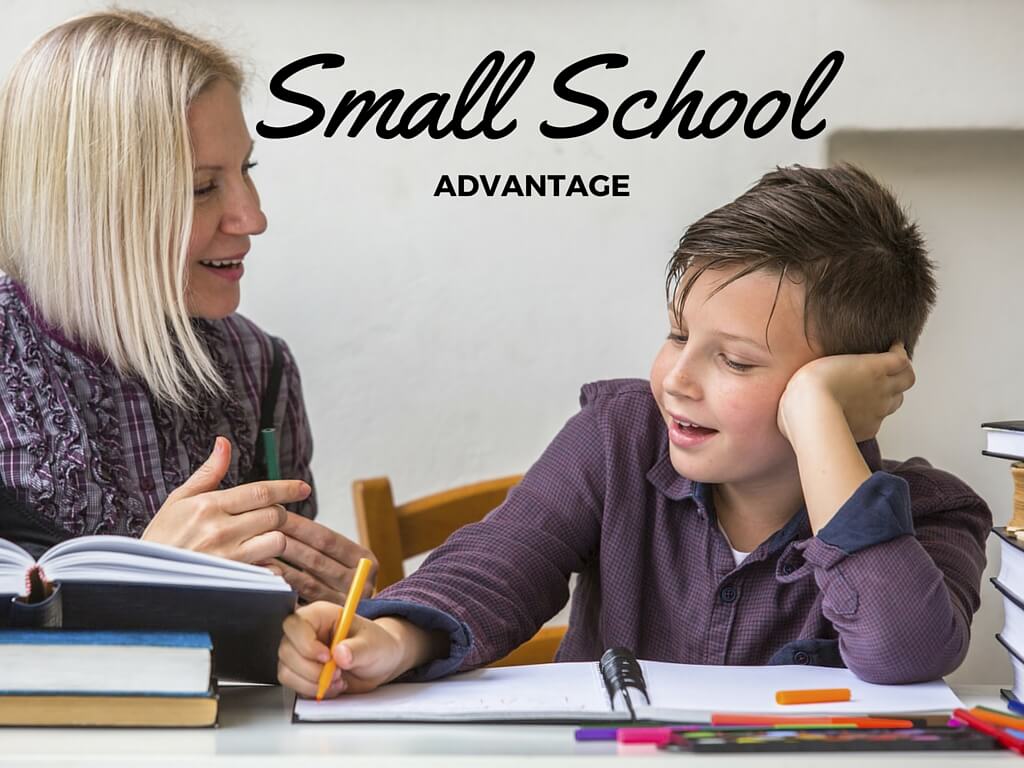The U.S. Department of Education realizes the academic benefits of a small private school. They had this to report based on the research:
- Private school students perform higher than public school students on achievement tests.
- Private high schools are required to fulfill more stringent graduation requirements than public high schools.
- “Private school students are more likely than public school students to complete a bachelor’s or advanced degree by their mid-20s.”
Parents may be well versed on these benefits and statistics; the great news, however, are the advantages do not end with the academic. The social advantages of a small school are plenteous as well. Listed below are 5 social advantages of attending a small private school.
Community atmosphere
Private schools have much smaller attendance numbers than public schools, with approximately 4 percent of the student population attending private schools and the remainder in either traditional public or public charter schools. For this reason, students have greater opportunities to get to know one another personally and develop close-knit relationships. Interestingly, behaviorists and learning theorists link positive classroom friendships with improved academic performance, especially when they mutually value learning.
Less bullying, cliques, peer teasing
Research conducted by Niche reveals the following information:
- Private schools enforce anti-bullying procedures more than public schools making them better equipped to deal with bullying.
- Private schools are more “accepting” to people who are different 47% to 36 % (public schools).
- Private schools have less cliques (only 38% versus 52 % for public schools).
The small number of students promotes a feeling of camaraderie. Students who feel different from their peers have a safe haven in private schools because the atmosphere is all-inclusive.
Provides an avenue/outlet for shy students to blossom
According to the research, shy students, on average, receive lower grades in college. This is most often due to feeling inhibited from speaking up in class, a habit likely developed in early years. Small private schools are less intimidating for shy students, thus, encouraging them to speak out more in the classroom. When shy students overcome their fear of speaking in front of others, it inspires them moving forward. One student said it this way, “The small class sizes and the one-on-one classes have really allowed me to excel. I’ve always been an introvert, so when I was in larger classes, it was always very hard for me to speak out in class and ask a question.”
Enhances teacher-student relationships
Students spend an extraordinary amount of their growing-up years in the school setting; that means teachers and school staff will be play a big part on the formative years of a child’s life. In a small school environment the teacher has much more one-on-one time with the students and is able to truly develop a relationship. The low student-teacher ratio affords teachers the opportunity to get to know their students personally, as well as academically. When students are struggling with understanding the material or needing that boost of confidence, the private school teacher is right there to guide them and give encouragement. These positive relationships between the student and teacher are profoundly meaningful. NYU Department of Psychology had an article discussing the positive impact of these relationships. A positive teacher student bond promotes a supportive classroom, which nurtures learning and growth in students. A teacher is often a child’s main voice of support and confidence.
Fosters student leadership through mentoring
Due to the class size, private schools sometimes combine students together for subjects such as science, social studies, or art. Both groups of students benefit from this set-up. Older students are able to demonstrate leadership skills by assisting younger students in need. Furthermore, when students explain what they have learned to another person (or answer questions), they actually learn it more completely. Younger students benefit also in that they have a role model or mentor to look up to.
A private school with its small attendance numbers benefits students both academically and socially. Not only do they receive superb academic instruction provided in a low student-teacher ratio, but the social advantages work to create a well-rounded experience for the child. At Tenney School, we take pride in giving our students a one-on-one experience. Customized instruction promises to meet the needs and demands of all the unique individuals we encounter, as well as nurture a love for learning. If you would like to discuss this topic further, please contact us today!


